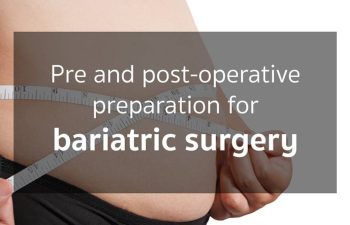
Bariatric surgery is the umbrella term for multiple gastrointestinal procedures that are done to aid in weight loss. Although dietary and lifestyle choices are the most common form of reducing weight, sometimes people suffering from diabetes, sleep apnea, hormonal imbalances, and other pre-existing illnesses face issues in reducing weight with just lifestyle and dietery modifications.
The foundation of bariatric surgery lies in changing the normal functioning of the digestive system. Since a lot of these procedures are irreversible, and any bariatric surgery can have a massive difference in one’s body functions, preparing for it well in advance is key to a smooth recovery.
How To Decide On Which Type Of Surgery
Which surgery option works for you is entirely dependent on why you are having the procedure, your pre-existing medical conditions, and your other medical history. Every surgical option comes with its own set of advantages and disadvantages. So, it is imperative to discuss all your options with your doctor – and even get second opinions – before deciding on the type of gastric bypass you opt for.
“Bariatric and metabolic surgery is a major decision,” says Dr. Fegelman. “However, if a patient waits too long in their disease progression, the benefits from surgery may be impacted.”
What To Expect Before Bariatric Surgery
Like any surgery, the patient should be mentally prepared for a variety of lab and blood tests. There will also be a change in diet, as well as training for portion control. Doctors will also put a stop to any kind of tobacco, drug, and alcohol consumption pre-surgery.
Furthermore, the type of surgery can also decide how much scarring and incision will take place on the body. So the patient needs to mentally prepare for surgical scars on the abdomen, ranging from large incisions to tiny, minimally invasive procedures. Patients should also prepare for a three to five day recovery time in the hospital.
What To Expect After Bariatric Surgery
After surgery, patients are usually not allowed to eat for 24-48 hours, to allow the digestive system to heal. After this, a strict diet plan is to be followed for 12 weeks, starting with a fluid diet and moving to soft foods before proper meals can be consumed. There are also changes to lifestyle that need to be adhered to, for recovery to be smooth. Until full recovery, your health will be closely monitored, to watch for any side-effects or complications.
Posted on behalf of Dr. David G. Davtyan MD, FACS, FICS





